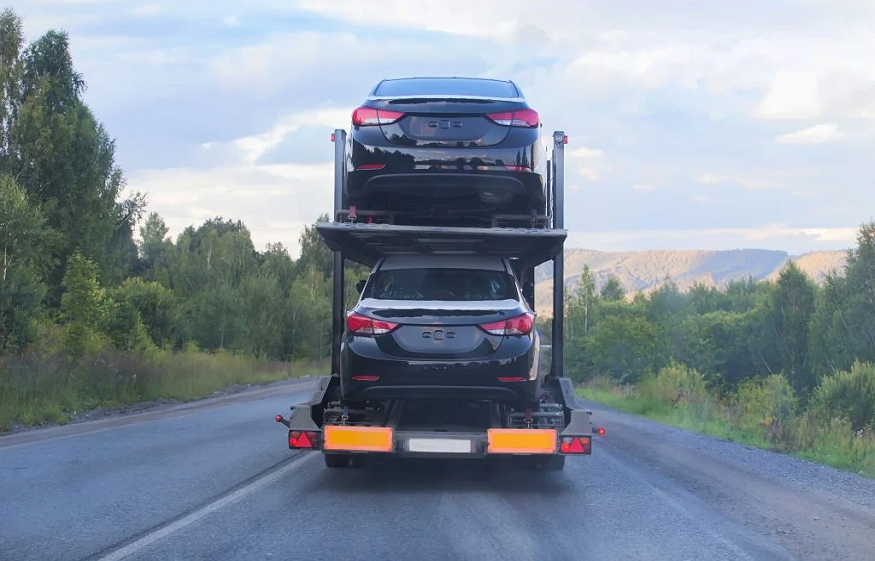Permanent Change of Station (PCS) moves are a regular part of military life, and with each move comes the big question: What do I do with my car? For many service members and their families, relocating across the country, or even overseas, means having to ship their personal vehicle. Fortunately, military car shipping is a well-established process, but there are still key things to know before you begin.
Whether it’s your first PCS move or your fifth, understanding your options, benefits, and responsibilities when it comes to shipping your car will help you make informed decisions and reduce stress during what can be a hectic time.
Does the Military Pay to Ship Your Car?
In some cases, yes. If you’re moving overseas (known as an OCONUS move), the government will typically pay to ship one privately owned vehicle (POV) to your new duty station. This is usually arranged through the Department of Defense (DoD) and handled by contractors approved by the government.
For domestic (CONUS) moves, however, the rules are different. The government does not pay to ship your vehicle if you’re moving within the continental United States. That means if you don’t want to drive your car across the country, you’ll need to arrange and pay for shipping on your own. The good news is that many auto transport companies offer military discounts and specialized services for service members.
Choosing the Right Auto Transport Company
If you’re covering the cost of car shipping yourself, it’s important to choose a reputable company, especially one that has experience working with military families. Look for transporters who offer:
-
- Military discounts
-
- Flexible pickup and delivery windows
-
- Door-to-door service
-
- Guaranteed pickup dates if you’re working with a strict moving timeline
Ask for quotes from several companies and check reviews. Be cautious of deals that seem too good to be true—low prices can often lead to delays, poor service, or hidden fees. A trustworthy company will be transparent, licensed, and insured.
Open vs. Enclosed Transport
Military members typically choose between two main types of shipping methods: open transport and enclosed transport.
Open transport is the most common and affordable option. Your car will be shipped on a trailer along with several other vehicles. While it is exposed to the elements, this method is safe and widely used.
Enclosed transport costs more but offers greater protection, making it a good choice for high-value vehicles or classic cars. If your PCS move involves harsh weather conditions or long distances, you may want to consider this option for added peace of mind.
Timing is Everything
PCS season often peaks during the summer months when many families prefer to relocate. That means auto transport companies are in high demand, especially for long-distance routes. Booking early is key to locking in availability and avoiding last-minute price hikes.
Try to schedule your vehicle shipment as soon as you receive your orders. Ideally, you’ll want a window of at least two to three weeks to coordinate the logistics and secure the best rate.
Preparing Your Vehicle for Shipping
Before your car is picked up for transport, it’s important to get it ready. Here are a few steps to follow:
-
- Clean your vehicle inside and out: This helps you and the driver inspect for any existing damage before shipping.
-
- Remove all personal items: Most carriers are not allowed to transport personal belongings inside the car.
-
- Check for leaks and mechanical issues: The car should be in running condition unless you’ve arranged for non-operational transport.
-
- Keep the gas tank about a quarter full: Enough for loading and unloading, but not so much that it adds extra weight.
-
- Disable alarms and toll tags: Avoid unnecessary interruptions or charges during transit.
The driver will also complete a Bill of Lading, which includes a condition report. Make sure to inspect the vehicle carefully before and after transport and note any new damage immediately.
What About Overseas PCS Moves?
If you’re being stationed overseas, the military will coordinate shipping your vehicle through an approved Vehicle Processing Center (VPC). These are official drop-off and pickup points managed by contractors working with the government.
When preparing for an overseas move:
-
- Make sure your vehicle is eligible: Certain countries have restrictions on car models, emissions, and modifications.
-
- Gather required documentation: This includes your orders, registration, proof of ownership, and a valid ID.
-
- Empty your vehicle: No personal belongings are allowed in the car for international shipping, except standard equipment like a jack or spare tire.
-
- Be aware of delivery timelines: Overseas shipping can take several weeks or even months depending on your destination, so plan accordingly.
Don’t Forget About Insurance
Most reputable transport companies carry basic liability insurance, but it’s important to ask what’s covered and what isn’t. If you have a newer or more valuable car, consider purchasing additional coverage for extra peace of mind.
Check with your current auto insurance provider as well—some policies may include shipping-related coverage, especially if you’re in the military.
Take Advantage of Military Support Resources
You don’t have to figure everything out on your own. Military bases have Transportation Offices (TOs) or Personal Property Shipping Offices (PPSOs) where you can get help with the paperwork, process, and planning. Take advantage of these resources, they’re there to help simplify your move.
Final Thoughts
Shipping your car during a PCS move doesn’t have to be a stressful experience. Whether you’re staying stateside or heading overseas, the key is to plan early, know your options, and work with a reliable transport company that understands the unique needs of military families.
From discounted rates to flexible scheduling and specialized knowledge, military car shipping services are designed to make your transition as smooth as possible—so you can focus on settling into your new duty station and getting back to what matters most.



